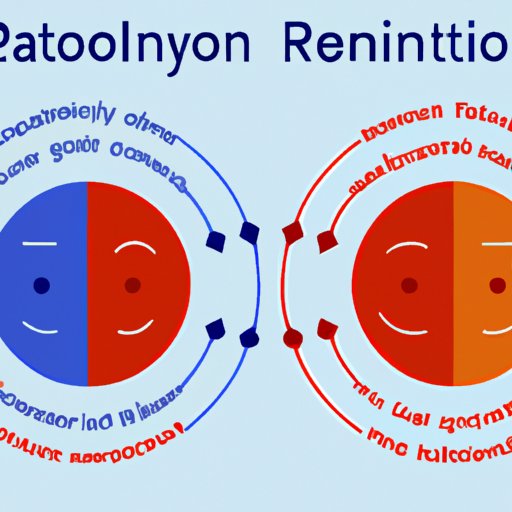Introduction
Decision-making is the process of selecting an action or course of action from a set of available options. We make decisions every day, from small and mundane choices such as what to eat for breakfast to more important decisions such as which career path to pursue. In all cases, our decisions are influenced by a variety of factors, including our emotions. This article will explore the role of emotions in decision-making, examining how different emotions affect choices we make, investigating the impact of positive and negative emotions on decisions, comparing the effects of emotional and rational decisions, and evaluating the benefits of being aware of our emotions when making decisions.
Analyzing the Role of Emotions in Decision-Making
It is well known that emotions can have a powerful effect on our decisions. For example, when we feel angry or scared, we often make decisions that we later regret. On the other hand, when we feel happy or excited, we may be more likely to take risks that could pay off in the long run. To better understand the role of emotions in decision-making, it is helpful to examine how different emotions affect choices we make.
When we feel positive emotions such as happiness or excitement, we tend to make decisions that are more optimistic and confident. We are more likely to take risks and try new things that could potentially lead to positive outcomes. On the other hand, when we feel negative emotions such as fear or anger, we tend to be more cautious and conservative in our decision-making. We may choose to stick with familiar options that we know will not lead to any major losses.
In addition to examining how different emotions affect choices we make, it is also important to investigate the impact of positive and negative emotions on decisions. Positive emotions such as joy and enthusiasm can help us to make decisions quickly and confidently. We may be more likely to take risks that could lead to rewards. On the other hand, negative emotions such as fear and anxiety can make it difficult to make decisions at all. We may become paralyzed by fear and unable to take any action.
Finally, it is useful to compare the effects of emotional and rational decisions. Emotional decisions are based on feelings and instinct, while rational decisions are based on logic and analysis. While emotional decisions can lead to quick and effective results in some cases, they can also be unreliable and lead to poor outcomes. Rational decisions, on the other hand, can be slow and require more effort, but they are usually more reliable and lead to better outcomes.
Exploring the Neuroscience Behind Emotion-Driven Decisions
To gain a deeper understanding of the role of emotions in decision-making, it is helpful to review studies on the brain regions involved in making decisions. Research has shown that the prefrontal cortex is responsible for making decisions, and the amygdala is responsible for processing emotions. The two areas interact with each other and work together to influence our decisions.
In addition to understanding the brain regions involved in decision-making, it is also important to examine the role of neurotransmitters in influencing decisions. Neurotransmitters such as dopamine, serotonin, and oxytocin play a significant role in regulating emotions and influencing our decisions. For example, dopamine is associated with reward-seeking behavior, while serotonin is associated with feelings of safety and security. By understanding the role of these neurotransmitters, we can better understand why certain emotions can lead to certain decisions.
Evaluating the Benefits of Being Aware of Our Emotions When Making Decisions
Being aware of our emotions when making decisions can be incredibly beneficial. Recognizing our emotions allows us to be more in tune with our own thoughts and feelings, which can help us to make more informed decisions. It can also help us to recognize patterns in our behavior and anticipate the potential outcomes of our decisions.
In addition to recognizing our emotions, it is also important to identify strategies to manage our emotions during decision-making. Taking deep breaths, counting to ten, and engaging in relaxation techniques can all help to reduce stress and anxiety and make it easier to make decisions. It is also important to be aware of our thought processes and challenge any negative thoughts that might be influencing our decisions.
Conclusion
In conclusion, this article has explored the role of emotions in decision-making. It examined how different emotions affect choices we make, investigated the impact of positive and negative emotions on decisions, compared the effects of emotional and rational decisions, and evaluated the benefits of being aware of our emotions when making decisions. By understanding the role of emotions in decision-making, we can learn to regulate our emotions in order to make better decisions.
To summarize, emotions play a key role in decision-making. Different emotions can lead us to make different decisions, and understanding the neuroscience behind emotion-driven decisions can help us to make more informed decisions. Finally, being aware of our emotions and managing them appropriately can help us to make better decisions and achieve better outcomes.
(Note: Is this article not meeting your expectations? Do you have knowledge or insights to share? Unlock new opportunities and expand your reach by joining our authors team. Click Registration to join us and share your expertise with our readers.)
